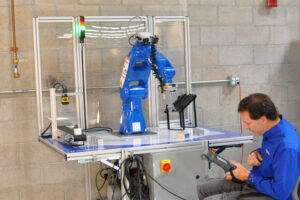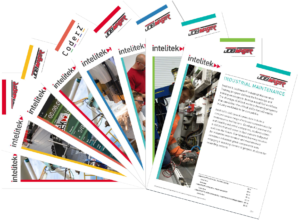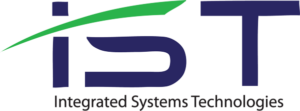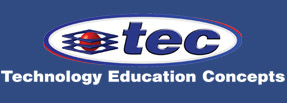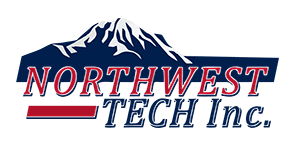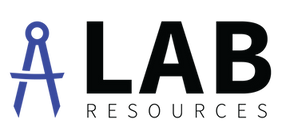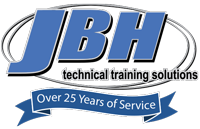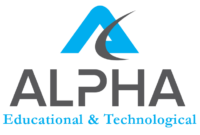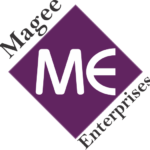As the skills needed for modern manufacturing jobs are evolving, many employers are struggling to find workers with the right talents needed to fill job openings. This skills gap has important implications for the future of the industry and the economic security of our nation.
Broadening the potential talent pool can help companies fill open positions, and a core strategy for doing so involves attracting a wider and more diverse array of workers to the manufacturing industry—including women and other traditionally underrepresented demographic groups.
Building a more diverse pipeline of manufacturing employees relies on encouraging more girls, students of color, disadvantaged students, and students from diverse backgrounds to participate in career and technical education (CTE). By ensuring diversity, equity, and inclusion (DEI) within manufacturing courses and programs, schools and colleges can help fill a critical industry demand.
A vital need
As factory processes become automated and workers need more technical training and skills, manufacturers increasingly have difficulty filling positions such as robotic operators and maintenance technicians.
According to a report from the business management consulting firm Deloitte, U.S. manufacturers face the prospect of as many as 2.1 million unfilled jobs by 2030 as the pace of digital transformation redefines the nature of manufacturing jobs.
Finding qualified talent is harder than it has been in the past, Deloitte notes. In 2020, 46 percent of manufacturers said they struggle to find employees with the right skills needed for success—up from 35 percent in 2015.
The potential impact of these jobs going unfilled is significant. Nearly eight in 10 manufacturing executives surveyed by Deloitte said it would have a “moderate” to “very high” impact on their ability to maintain production levels to satisfy growing demand, respond to new market opportunities, and support innovation. Deloitte’s report estimates this could cost the U.S. economy more than $1 trillion by 2030 alone.
DEI as a key solution
Recruiting more employees from underrepresented groups would broaden the pool of talent available to manufacturing companies, thereby mitigating hiring challenges.
In manufacturing, DEI is often focused on women because the industry historically has been male-dominated. “Fewer than one in three manufacturing professionals are women today,” Deloitte writes, “despite [women] representing nearly half of the overall workforce in the United States.”
Not as many women opted for manufacturing jobs when the industry was characterized by noisy, dirty factories and employers valued attributes such as physical strength. But modern manufacturing facilities are very different, and the skills that today’s employers are looking for—including the ability to analyze information and rapidly solve problems—apply equally to men and women.
Focusing on DEI not only expands the potential talent pool for employees; it also drives innovation. By bringing in more diverse perspectives, companies can develop products and processes that appeal to a broader range of customers. An analysis of Fortune 500 manufacturing companies by Deloitte found that companies fostering diversity in the workplace were more likely to have stronger financial performance.
“The simple demographic arithmetic demands that organizations cannot have a robust talent strategy without a robust DEI strategy,” Deloitte writes. “Manufacturers are moving quickly to build a workforce management strategy that expands diversity in their talent pipeline, fosters an inclusive culture that will retain diverse talent, and upskills their workforce for tomorrow.”
Strategies for success
Focusing on equity and inclusion within CTE programs is a key way to expand the diversity of the manufacturing pipeline. Making sure that girls and students of color participate in manufacturing courses in proportionate numbers can ensure that employers have a diverse pool of talent from which they can hire.
The Association for Career and Technical Education (ACTE) offers advice on building and promoting more inclusive CTE classrooms. Here are some of the organization’s recommendations:
Understand your own implicit biases.
The implicit biases we carry around with us affect how we treat and interact with others, both consciously and subconsciously. For instance, if you believe women are less mechanically or technologically inclined by nature, your words and actions might discourage girls from participating in manufacturing courses. By understanding and addressing these biases, educators and administrators can build CTE programs that are more welcoming and inclusive of all students. The Implicit Association Test is one way to measure inherent bias.
Get to know your students.
By understanding who your students are, what their frame of reference is, and what languages they speak and cultures they represent, you can make explicit connections to students’ lived experiences within CTE courses and programs. Taking the backgrounds and characteristics of your students into account allows you to design more engaging and relevant lessons and projects.
Get to know the job opportunities.
Meeting with local industry, seeing the jobs, roles, and tasks they need to fill will enable you to better understand and explain the opportunity to a diverse range of candidates for your CTE program. Companies are more likely to have tools and information to help build the arguments you need to recruit students.
Use inclusive learning resources.
Make sure your students can see themselves reflected in the projects, curriculum, and promotional materials you use within your CTE programs. Show them role models and let them know what’s possible by connecting them with manufacturing workers and industry representatives who look like they do.
Also, make sure you’re using teaching materials that are inclusive of all learners and that remove any barriers to participating. For instance, Intelitek’s Industry 4.0 manufacturing CTE solutions use hardware that is safe and student-friendly, as well as self-paced, online learning tools and simulations that are less intimidating and provide an easy entry point for students of all backgrounds and abilities.
Creating a more diverse pipeline of employees is critical for helping companies fill modern manufacturing positions, and schools and colleges play a key role in this effort. Focusing on DEI in manufacturing courses and programming is a fundamental strategy for preparing the workforce of the future.




